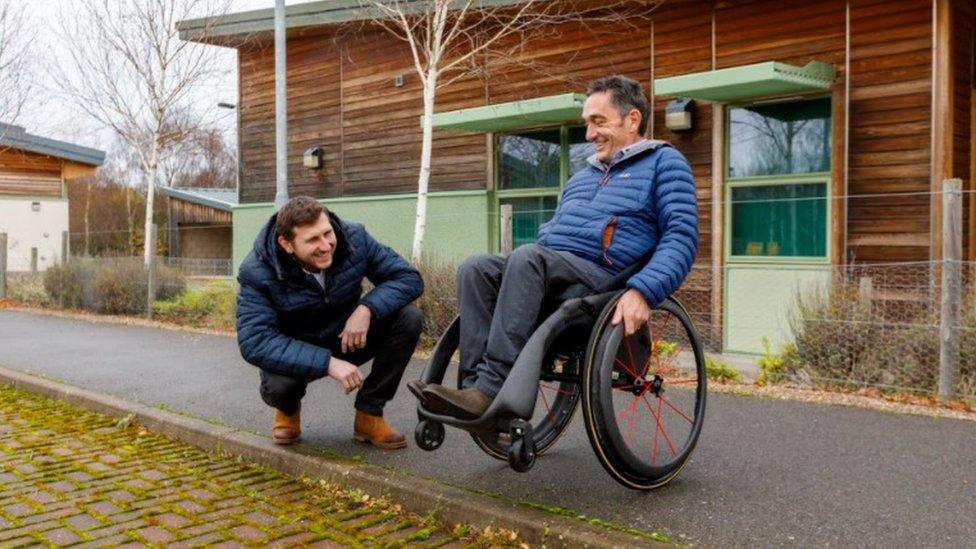UK designer's wheelchair innovation wins $1m Toyota prize (original) (raw)
 Image source, Malcolm McCurrach | New Wave Images UK
Image source, Malcolm McCurrach | New Wave Images UK
A Scottish designer has won $1m (£753,000) to fund the manufacture of his innovative smart-wheelchair.
Andrew Slorance, who uses a wheelchair himself, won the Toyota-run global Mobility Unlimited Challenge.
Inventors were invited to submit smart technologies to improve the lives of people with lower-limb paralysis.
The Phoenix I uses smart sensors to detect if the user is leaning forward or backwards and adjusts its centre of gravity to prevent tipping or falling.
Image source, Malcolm McCurrach | New Wave Images UK
Phoenix Instinct chief executive Mr Slorance said winning was "out of this world... incredible".
And he was "thrilled to be leading the smart-wheelchair revolution".
Mr Slorance started using a wheelchair 37 years ago after injuring his spinal cord falling from a "gigantic" tree as a 14-year-old.
"I remember having an extraordinary feeling of disbelief that this was actually happening," he said.
"Then I remember branches breaking across my face as I fell towards the ground."
Having to use a wheelchair he describes as "25kg [four stone] of steel", he felt "devastated" and "judged as disabled" when he had to use it.
Image source, Andrew Slorance
"Since then, nothing has really happened in wheelchairs," he said.
"They've made them smaller or more compact.
"But the technology hasn't changed for nearly four decades."
The team of five at Phoenix Instinct used a "mammoth" amount of 3D printing to perfect the winning design, an ultra-lightweight manual wheelchair made from carbon fibre.
"You 3D print it, hold it and look at it," Mr Slorance said.
"You can sit in it and if it doesn't feel right, you print another one.
"Then, you make mould tools. We can fine-tune and tweak it."
'Good buy'
The company, based in Forres, Moray, will produce the Phoenix I in-house to keep it cost-effective.
The aim is for it to cost £4,000-£5,000 and be on the market within two years.
"It's still a lot of money for a wheelchair," Mr Slorance said.
"But for what it can do compared to the other brands that are still using 1980s technology, I think it's a good buy."
Image source, Andrew Slorance
More than 80 teams from 28 countries entered the competition, launched in 2017.
The winner was set to be announced at the Tokyo Paralympics this summer.
But the Games have been postponed to 2021 because of the coronavirus pandemic.
'Considerable problem'
The five finalists included teams from Italy, Japan and America, with devices such as a hybrid exoskeleton on wheels.
Each will receive $500,000 to develop prototypes of their design.
Mr Slorance said: "My experience, as a wheelchair user, has allowed me to solve a considerable problem.
"Maybe that decision in 1983 will be offset by the good stuff."
For more disability news, follow BBC Ouch on Twitter, external and Facebook, external and subscribe to the weekly podcast on BBC Sounds.
Related internet links
The BBC is not responsible for the content of external sites.